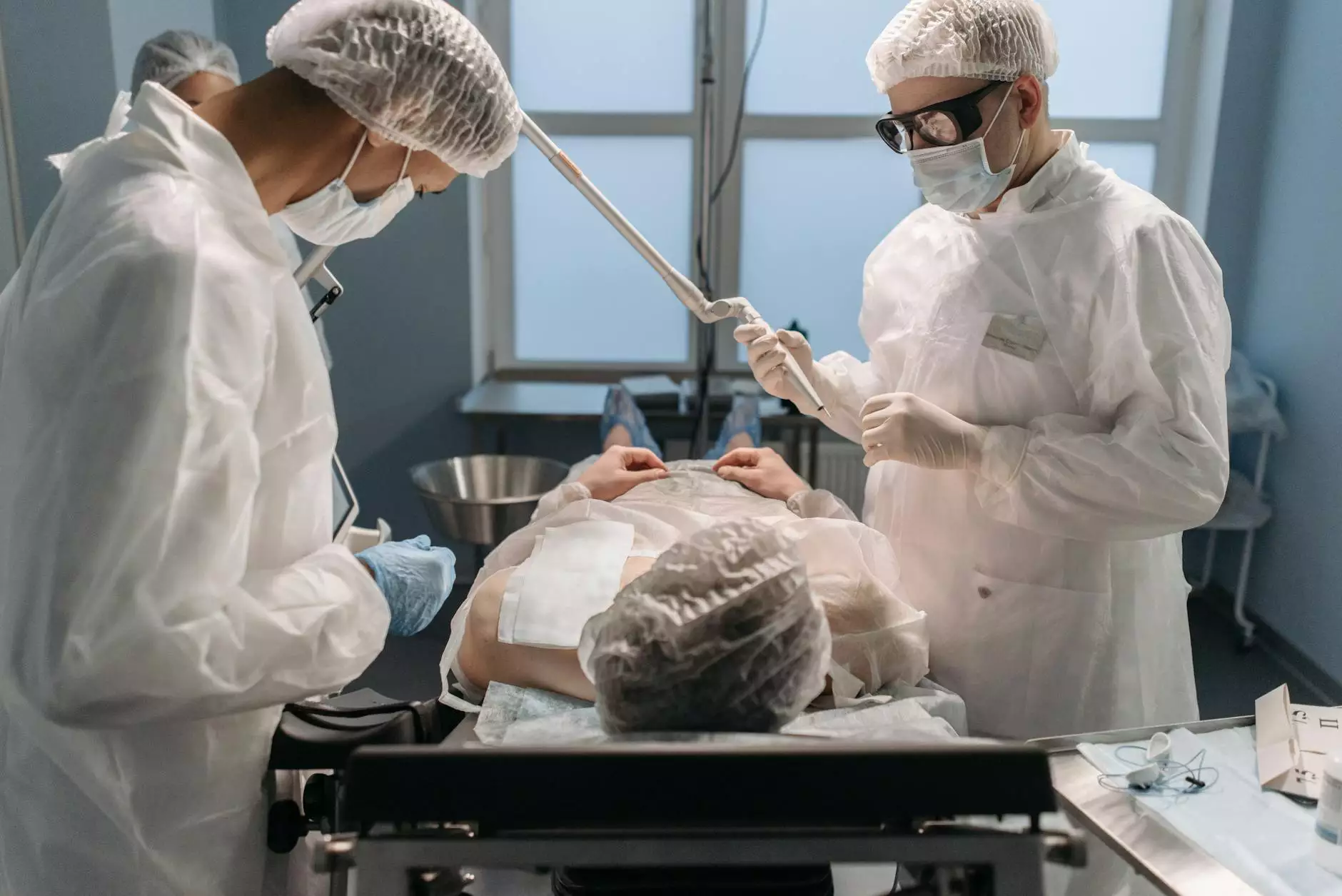Understanding Lung Health: Insights from a Leading Lung Doctor

The importance of lung health cannot be overstated. Our lungs are essential for life, allowing us to breathe and provide oxygen to our bodies. A lung doctor, or pulmonologist, specializes in diagnosing and treating respiratory conditions, ensuring our lungs function optimally. This article aims to explore various aspects of lung health, from common diseases and treatment options to preventive measures that everyone should adopt.
The Role of a Lung Doctor
A lung doctor is a medical professional specializing in the diagnosis and treatment of conditions affecting the lungs and respiratory system. They play a critical role in managing illnesses such as:
- Asthma: A chronic condition that inflames and narrows the airways, making breathing difficult.
- Chronic Obstructive Pulmonary Disease (COPD): A group of lung diseases that block airflow and make it difficult to breathe, with emphysema and chronic bronchitis being the most common forms.
- Lung Cancer: One of the leading causes of cancer deaths; early detection can significantly enhance treatment outcomes.
- Pneumonia: An infection that inflames the air sacs in one or both lungs, potentially filling them with fluid or pus.
- Interstitial Lung Disease: A group of disorders that cause progressive scarring of lung tissue, affecting lung function.
These specialists utilize advanced diagnostic tools like spirometry, CT scans, and bronchoscopy to evaluate and treat respiratory conditions effectively. By collaborating with other healthcare providers, including physiotherapists, they ensure a holistic approach to managing lung health.
Importance of Early Diagnosis and Regular Check-ups
Regular visits to a lung doctor are crucial for maintaining lung health, especially for individuals at risk of respiratory diseases. Early diagnosis can lead to:
- Better Treatment Outcomes: Early intervention often leads to more effective treatment plans.
- Prevention of Complications: Diagnosing conditions early can prevent them from worsening, reducing the risk of severe complications.
- Education and Awareness: Engaging with a lung specialist helps patients understand their conditions and teaches them about proper management techniques.
Annual check-ups or biannual visits are recommended, particularly for those with a family history of respiratory diseases or individuals with chronic conditions.
Common Lung Diseases: Symptoms and Treatment
Understanding the symptoms and treatment options for common lung diseases is essential for maintaining your lung health. Here are some of the most prevalent conditions:
Asthma
Asthma affects millions worldwide, characterized by recurring episodes of wheezing, shortness of breath, chest tightness, and coughing. Treatment typically includes:
- Inhalers: Quick-relief inhalers (bronchodilators) to ease symptoms during an asthma attack.
- Long-term Control Medications: Corticosteroids to reduce inflammation in the airways.
- Allergy Management: Avoiding triggers and possibly taking medication for allergies.
Chronic Obstructive Pulmonary Disease (COPD)
COPD is often caused by prolonged exposure to irritating gases or particulate matter, most commonly from cigarette smoke. Symptoms include chronic cough, sputum production, and dyspnea. Treatments include:
- Smoking Cessation: Quitting smoking is the most crucial step for managing COPD.
- Bronchodilators: Medications that help relax the airway muscles.
- Pulmonary Rehabilitation: A program that includes education, exercise training, nutrition advice, and counseling.
Lung Cancer
Lung cancer presents with symptoms such as coughing up blood, unexplained weight loss, chest pain, and persistent cough. Key treatment strategies include:
- Surgery: Removal of the tumor, which may involve lobectomy or pneumonectomy.
- Chemotherapy: Using drugs to kill cancer cells.
- Radiation Therapy: High-energy rays to target and kill cancer cells.
Pneumonia
Pneumonia can manifest through symptoms like fever, chills, cough, and difficulty breathing. Treatment typically involves:
- Antibiotics: Prescribed for bacterial pneumonia.
- Rest and Hydration: Vital for recovery.
- Hospitalization: May be necessary for severe cases, especially in elderly patients.
Interstitial Lung Disease
This group of lung diseases leads to lung scarring, impacting the ability to breathe deeply. Treatments can vary significantly but often include:
- Immunosuppressive Medications: To reduce inflammation.
- Oxygen Therapy: To improve oxygen levels in the blood.
- Lung Transplant: Considered for advanced cases.
Preventive Measures for Lung Health
Preventive care is essential for maintaining lung health. Here are important steps every individual should consider:
- Avoid Smoking: If you smoke, seek help to quit. Avoid secondhand smoke as well.
- Regular Exercise: Physical activity enhances lung function and promotes overall health.
- Healthy Diet: Incorporating fruits, vegetables, and whole grains supports lung health through antioxidants and anti-inflammatory properties.
- Vaccinations: Stay updated on vaccines, such as the flu shot and pneumococcal vaccine, to protect against respiratory infections.
- Air Quality Awareness: Monitor local air quality and limit exposure during high pollution days.
Furthermore, maintaining a clean living environment, using air purifiers, and ensuring adequate ventilation at home can greatly enhance air quality.
Physical Therapy Insights for Respiratory Health
Collaboration between lung doctors and physiotherapists is essential. Physical therapy can significantly improve respiratory function through various techniques:
- Breathing Exercises: Techniques like diaphragmatic breathing can enhance lung capacity.
- Chest Physiotherapy: Helps in clearing mucus from the lungs, particularly beneficial for patients with COPD or cystic fibrosis.
- Endurance Training: Improves oxygen utilization in the body, crucial for patients with chronic respiratory conditions.
The Future of Lung Health Care
The field of lung health is rapidly evolving, with ongoing research leading to innovative treatment methods. Technologies such as telemedicine are making it easier for patients to consult with a lung doctor from the comfort of their homes. Innovations in genetic therapies and personalized medicine offer hope for those with complex lung diseases.
Conclusion
Lung health is paramount to overall well-being. Regular visits to a lung doctor, understanding common respiratory conditions, and committing to preventive measures can vastly improve lung function and quality of life. Remember that you have the power to protect your lungs; take proactive steps today for a healthier tomorrow!
For expert advice and personalized care, visit Hello Physio, where we provide comprehensive health services, including sports medicine and physical therapy, to support your lung health journey.









